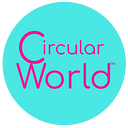Capturing Citizen Initiatives
We know the future is electric. Most of the efforts towards electrifying the world have focused on the most easily identifiable form — renewable energy. What we hardly ever talk about is the industrial process that uses thermal energy to produce, treat, or alter manufactured goods. Process heating systems are emission-intensive because fossil fuel combustion provides 95% of industrial heat across the manufacturing sector.
Roasting coffee is an excellent example of one type of process heat. A coffee roaster is essentially a big oven, and the green coffee beans are introduced into this oven to be cooked or roasted. Most roasting equipment runs on natural gas, which produces both carbon emissions and air pollution. As the momentum grows for sustainable coffee, so too is the growth in electric roasting equipment that can cut carbon emissions by up to 90% compared to gas roasters.
The electric roasting machines also reduce a type of particulate matter produced by the methane gas used to roast coffee and by the coffee itself as it is roasted. These electric machines are ventless, so the vast majority of particulate matter and volatile organic compounds released in the roasting process do not end up in the air.
Except, this week’s Pick is not about roasters but about capturing the hearts and minds of ordinary citizens to embrace climate change and resource management (the foundation of the circular economy) through the activities of their day-to-day lives.
The Unconscious ‘S’ in ESG
Traditionally, we have relied on companies to deliver ESG strategies based on sustainability standards. Over the last several months, in conversations with many young Malaysians, every single person I spoke to was familiar with the term ESG and how it equated with sustainability, even if the precise definition was a little elusive.
The recent Israel-Palestine war has opened up a new form of community activism, with Malaysian consumers boycotting international brands seen as supporting Israel in its war against the Palestinian militant group Hamas according to a recent article from The Straits Times. Although it may not be so obvious, these actions are the essence of citizen engagement, the ‘S’ in ESG.
This consumer shift could have a greater impact if local coffee shops and suppliers would factor in a sustainability connection as well. Imagine going into your local coffee shop to find an electric roaster or information that your cup of coffee was roasted on a machine that had up to 90% less carbon emissions and reduced pollutants.
“The S in ESG stands for Social. At its core, ESG social is about human rights and equity — an organization’s relationships with people, as well as its policies and actions that impact individuals, groups, and society.”
Malaysia is home to approximately 2,000 coffee producers, mostly concentrated in the states of Kedah, Johor and Saba. In a little-known fact, Malaysia is the world’s second-largest producer of Liberica coffee, a cousin of Arabica and Robusta coffee, behind the Philippines. Liberica is perceived as a heritage coffee crop in Malaysia, with younger consumers typically perceiving Arabica as higher quality. Nevertheless, local roasters are leveraging Liberica’s traditional appeal, high sweetness and smoky, woody, floral notes to create a distinct identity for the Malaysian speciality coffee segment.
“Liberica is still the preference in Malaysia, but due to its high production cost and limited availability of premium beans, it’s mostly used in commercial blends,” says Jason Liew, owner of My Liberica, a five-store speciality coffee shop and roaster. “If Liberica can be produced to high standards, Malaysians will increasingly embrace it due to their historical attachment to it.”
The World Coffee Portal data forecast the total market in Malaysia will exceed 6,000 stores by 2028. Investing in local coffee production, regenerative agriculture to improve the yield of premium beans and reduce production costs is one way to establish a more resilient, sustainable and circular economy. As we transition to an all-electric society, there is plenty of opportunity for innovation beyond an electric roaster that builds a deeper connection to consumers who are voting with their wallets in ways not seen before.
***************************
Ms Adrienna Zsakay is the Founder and CEO of Circular Economy Asia Inc, and this article represents her opinions on the circular economy. Circular Economy Pick of the Week is brought to you by Circular World™ Media — a brand owned by Circular Economy Asia Inc.
References
‘Process Heat Basics’ published by the US Office of Energy Efficiency and Renewable Energy
‘Exploring the Different Types of Heat Used in Coffee Roasting’, published by Fjord Coffee Roasters, 10 May 2022.
‘The e-roasters have arrived’ by Brian Kahn, Bloomberg Green, 18 December 2023
‘Boycott boost: Malaysian coffee chains gain as locals shun US brands over Gaza war’ by Hazlin Hassan, Malaysia Correspondent, The Straits Times, 04 February 2024.
Image: Mukarami Coffee (from the above article from The Straits Times)
‘ESG 101: What does social in ESG mean?’ by Jamie Molnar, Director, ESG Product Marketing, published by OneTrust.com
‘Tradition meets innovation in Malaysia’s fast-developing coffee shop market’ published by World Coffee Portal, 26 January 2024
Image: Arabica, Robusta, Liberica, and a 20-cent Malaysian coin.
Originally published at https://www.linkedin.com.
